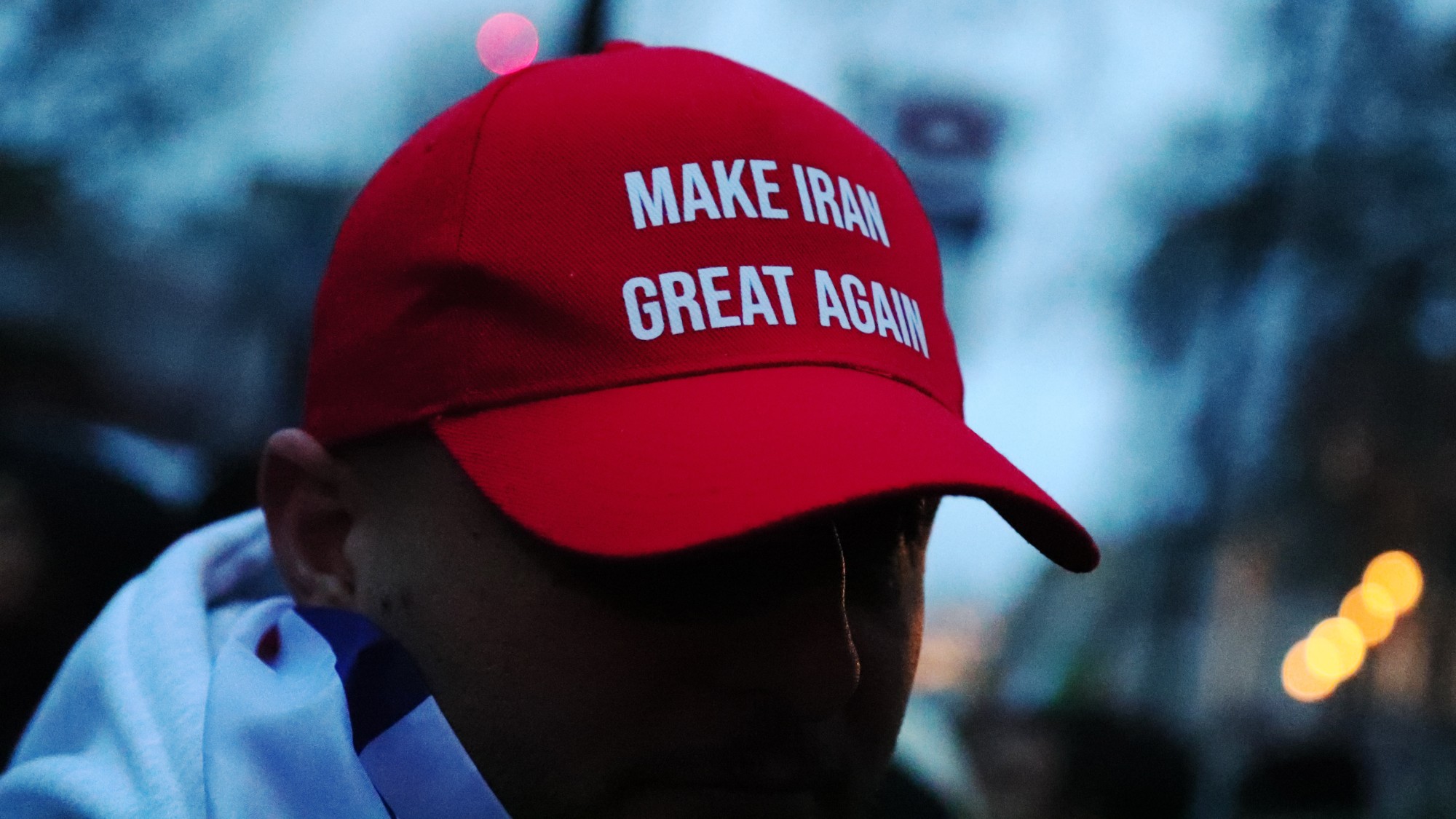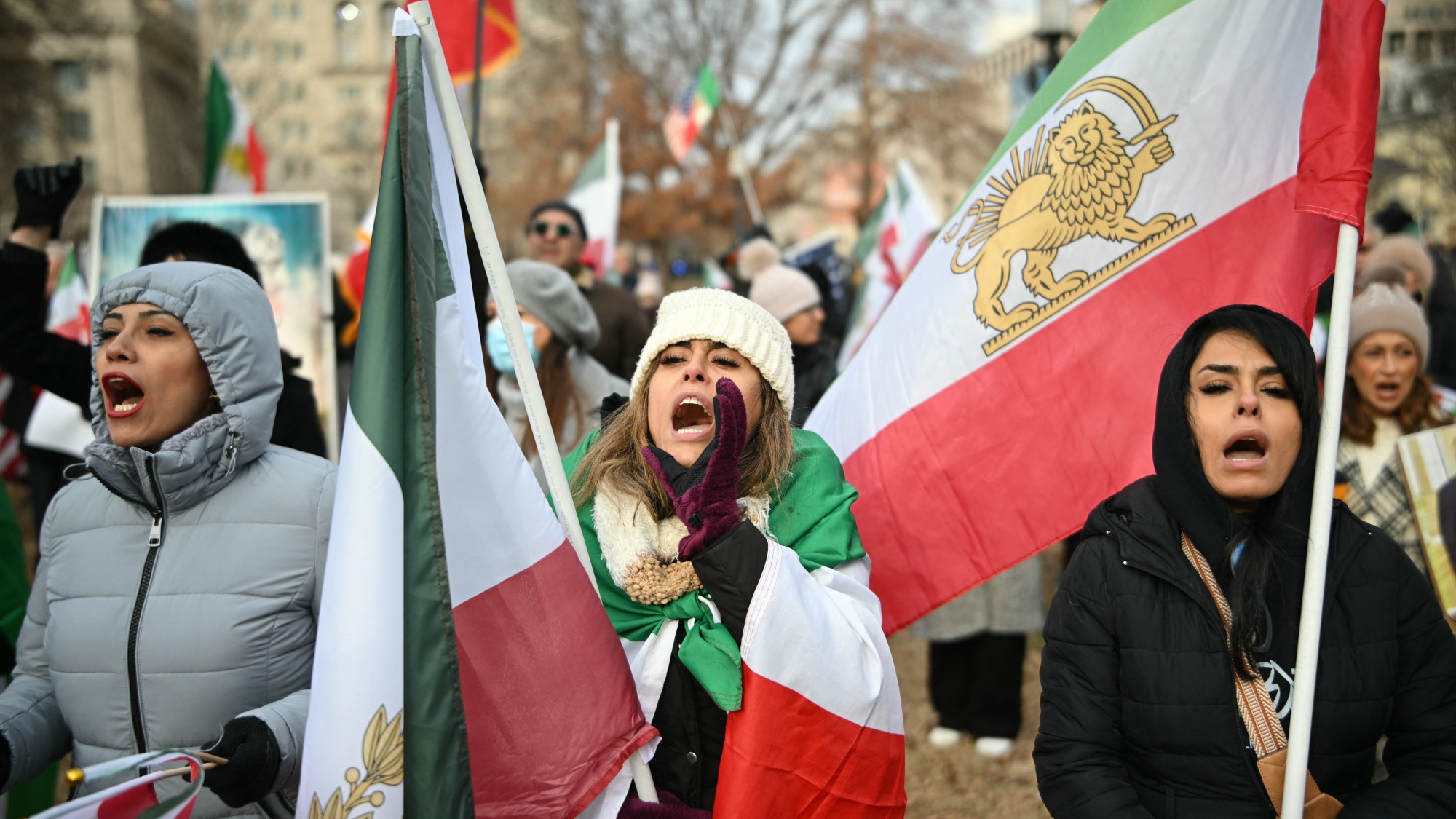Amnesty defends filming of woman stoned to death
20-minute scene has been called ‘lurid torture porn’ but campaigners believe we need to know the truth
A free daily email with the biggest news stories of the day – and the best features from TheWeek.com
You are now subscribed
Your newsletter sign-up was successful
A movie opening in London tomorrow, based on a true story from Iran, contains a prolonged scene in which a woman is slowly stoned to death by her family and neighbours. It goes on for 20 minutes, showing stone after stone being hurled at the defenceless woman whose brutal husband has invented the story of her adultery.
When The Stoning of Soraya M opened in Manhattan last summer, the New York Times criticised the film because it "thoroughly blurs the line between high-minded outrage and lurid torture-porn".
But with the fate of Sakineh Mohammadi Ashtiani, sentenced to death by stoning, still undecided, and other Iranians facing the same end, some campaigners now believe the film can only do good.
The Week
Escape your echo chamber. Get the facts behind the news, plus analysis from multiple perspectives.

Sign up for The Week's Free Newsletters
From our morning news briefing to a weekly Good News Newsletter, get the best of The Week delivered directly to your inbox.
From our morning news briefing to a weekly Good News Newsletter, get the best of The Week delivered directly to your inbox.
Tom Whipple, reviewing the film for the London Times ahead of its opening at the ICA, say the viewer is "shown no mercy, no tasteful fade-outs..."
He writes: "As Soraya's husband throws the first stone, this, you think, is where, if a lifetime of watching movies has taught you anything, the camera should pan away...
"But there is a second stone. And a third. And a fourth... After 10 minutes I have to take a break. The tasteful cutaway never arrives."
The film's director, Iranian-American Cyrus Nowrasteh, is unrepentant.
A free daily email with the biggest news stories of the day – and the best features from TheWeek.com
"Usually two or three people per screening will walk out. That's fine," he says. "After I saw footage of a real stoning I decided I had to do it this way.
"When you see the ritualistic process involved, and how long it takes, it seems like such an obvious injustice to those many men and women who have been stoned to death to sanitise it because someone in the audience might be upset."
The Stoning of Soraya M is based on the 1990 bestseller by Freidoune Sahebjam, a French-Iranian journalist who investigated the real Soraya's life and death after hearing a first-hand account of her tragic story during a visit to Iran in 1986.
The writer is played in the film by Jim Caviezel, the only non-Iranian in the cast. When his car breaks down on a mountain road, he gets a tow to a hamlet where a woman dressed in a black chador tries to speak to him before being chased off by locals, who claim she is mad.
The journalist follows the woman to her home - where she tells him how Soraya, a married woman with two sons and two daughters, had been stoned to death only the day before.
It transpires that Soraya's husband, Ali, had become infatuated with a 14-year-old girl and, unable to afford two wives, had decided to get rid of Soraya by falsely accusing her of adultery.
Soraya, a beautiful woman with cascades of pre-Raphaelite hair (played in the film by the Los Angeles based actress Mozhan Marno), had been earning extra money by cooking for a local widower.
Ali forced the man to lie and say Soraya had been unfaithful.
The ploy worked and the village elders quickly issued their verdict - that she be stoned to death.
Dressed in white, with her hands tied, she is buried up to her waist in a pit. Her father casts the first stone, followed by her sons and the rest of the men in the crowd.
"The stoning scene is unrelenting," writes Tom Whipple of the Times, "the most shocking movie violence I have ever seen."
Is it gratuitous - or is it right that cinema audiences should understand the barbarity of a stoning?
With 14 people known to be awaiting death by stoning in Iran and with the fate of Ashtiani still uncertain - her son has just been arrested and charged with talking to foreign journalists about his mother's case - Amnesty International supports the film.
"What will create change in Iran is a lot of small actions," says Kate Allen, director of Amnesty International UK. "Getting more people to think about the death penalty, stoning and how it works in Iran is crucial."
is a London-based reporter who writes about show business and arts for The First Post. She has worked in Hollywood and Paris.
-
 Political cartoons for February 12
Political cartoons for February 12Cartoons Thursday's political cartoons include a Pam Bondi performance, Ghislaine Maxwell on tour, and ICE detention facilities
-
 Arcadia: Tom Stoppard’s ‘masterpiece’ makes a ‘triumphant’ return
Arcadia: Tom Stoppard’s ‘masterpiece’ makes a ‘triumphant’ returnThe Week Recommends Carrie Cracknell’s revival at the Old Vic ‘grips like a thriller’
-
 My Father’s Shadow: a ‘magically nimble’ film
My Father’s Shadow: a ‘magically nimble’ filmThe Week Recommends Akinola Davies Jr’s touching and ‘tender’ tale of two brothers in 1990s Nigeria
-
 How corrupt is the UK?
How corrupt is the UK?The Explainer Decline in standards ‘risks becoming a defining feature of our political culture’ as Britain falls to lowest ever score on global index
-
 ‘The mark’s significance is psychological, if that’
‘The mark’s significance is psychological, if that’Instant Opinion Opinion, comment and editorials of the day
-
 ‘My donation felt like a rejection of the day’s politics’
‘My donation felt like a rejection of the day’s politics’Instant Opinion Opinion, comment and editorials of the day
-
 How Iran protest death tolls have been politicised
How Iran protest death tolls have been politicisedIn the Spotlight Regime blames killing of ‘several thousand’ people on foreign actors and uses videos of bodies as ‘psychological warfare’ to scare protesters
-
 ‘It may portend something more ominous’
‘It may portend something more ominous’Instant Opinion Opinion, comment and editorials of the day
-
 The high street: Britain’s next political battleground?
The high street: Britain’s next political battleground?In the Spotlight Mass closure of shops and influx of organised crime are fuelling voter anger, and offer an opening for Reform UK
-
 What are Donald Trump’s options in Iran?
What are Donald Trump’s options in Iran?Today's Big Question Military strikes? Regime overthrow? Cyberattacks? Sanctions? How can the US help Iranian protesters?
-
 Unrest in Iran: how the latest protests spread like wildfire
Unrest in Iran: how the latest protests spread like wildfireIn the Spotlight Deep-rooted discontent at the country’s ‘entire regime’ and economic concerns have sparked widespread protest far beyond Tehran